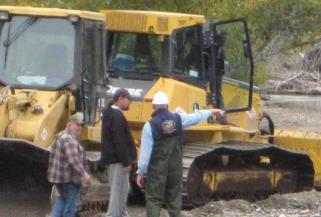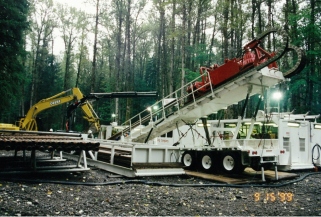Markets
- - Pipelines
- - Mines
- - Infrastructure
"At the root of human responsibility is the concept of perfection, the urge to achieve it, the intelligence to find a path towards it, and the will to follow that path, if not to the end at least the distance needed to rise above individual limitations and environmental impediments."
-Aung San Suu Kyi
Markets
Experienced hydrotechnical input is critical to the design, construction and operation of pipelines, mining and infrastructure projects. Furthermore this life cycle experience is essential to developing sound, practical and effective solutions to meet ever-evolving regulatory requirements.
Pipelines
In their traverse from source to markets, long distance oil and gas pipelines may traverse varied terrains and cross rivers subject to floods, ice jams,glacier-dammed lake releases and debris flows generated by rain or volcanic eruptions resulting in the melting of glaciers.See More
Mines
Open pit mines, whether for coal, metals, oils sands or gravel resources, frequently require river diversions, dewatering and sediment management. Overall project approval and individual permits can hinge on a sound understanding of hydrotechnical principles based on long-terms hands-on experience in the design, construction and operation of mines. See More
Infrastructure
For historic transportation reasons, most major inland urban centers are located on rivers. Early settlers were not concerned about or were not aware of the impact of floods. With a small population or boats, they had no need to efficiently transport people across rivers via bridges.See More








